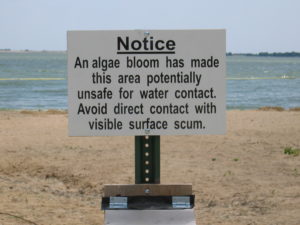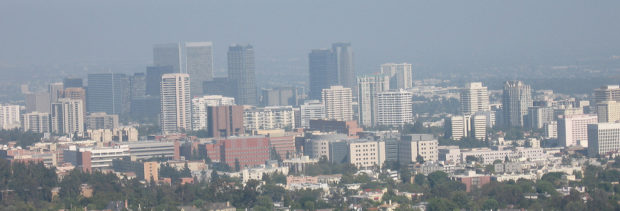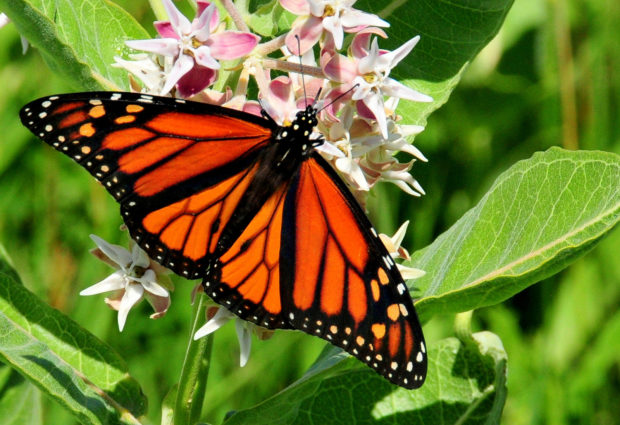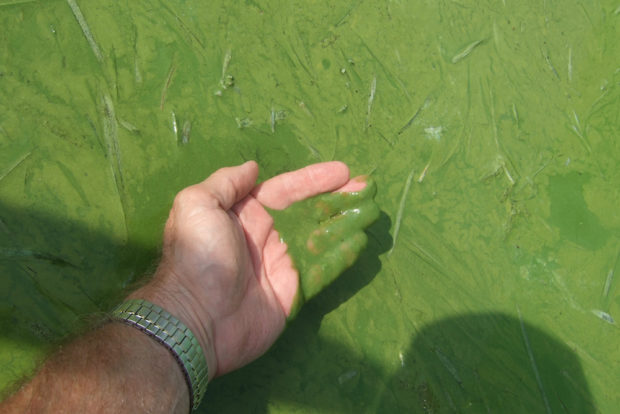We have much more to do and your continued support is needed now more than ever.
Clean Air Rollback by Congress Could Impact Summer Fun


As we head into the annual Memorial Day kickoff of the summer season, Americans have a lot to look forward to – warm, sunny days at the beach, on the trail, in the garden, or on the water. Unfortunately, the hazy days of summer also come with some downsides, too. Residents in many areas of the country will soon be warned to stay indoors because of smog pollution and many people will find their favorite beaches closed due to toxic algal blooms.
We have federal clean air and water protections to help prevent or minimize these annual threats, yet some U.S. senators and special interests in Washington, D.C., are pushing hard to weaken these protections, which could only make these troubling problems worse.
Ethanol Mandate Driving Clean Air Rollback
The unlikely crux of this story is a fuel called ethanol, which is made from the starch in corn kernels and is blended into traditional gasoline that we buy at the pump. A federal mandate requires the blending of alternative fuels into our fuel supply, and to date, corn-based ethanol is the only game in town. Our current fuel supply contains a blend of about 10 percent ethanol and 90 percent gasoline. This blend is known as “E10.” With both legal and practical constraints limiting the expansion of ethanol beyond this level, the ethanol industry is pushing for ways to expand and increase the adoption of a higher E15 blend. If adopted in a major way, uptake of E15 could have major negative consequences to air and water quality, land use and wildlife habitat, and even human health.
Ethanol Industry Takes Aim at Clean Air Protections
U.S. Senators from corn-producing states have been pulling out all the stops to find a way to waive clean air regulations so that E15 gasoline can be sold nationwide during the summer months. That’s a horrible idea. In warmer summer months, ethanol increases the amount of ground-level ozone, which we call smog, generated by gasoline. In addition to making the air hazy, smog is a lung irritant that contributes to asthma and other breathing trouble. The vapors that form it are also potentially carcinogenic.
Studies have clearly shown that increased usage of ethanol in gasoline leads to higher smog levels, particularly in heavily populated areas. Again, higher ozone levels are associated with asthma and other respiratory problems, especially among children and the elderly. Waiving clean air regulations to allow increase sales of E15 will only lead to more bad air days, more trips to the emergency room, and more misery for many Americans.

Recognizing that smog is dangerous to human health, the Clean Air Act directs the Environmental Protection Agency to regulate gasoline emissions and how readily they generate the pollutant in summer months. Since ethanol is used to enhance fuel performance, blends up to E10 have been granted a waiver of these rules and can be sold year round. U.S. Sens. Chuck Grassley (R-Iowa), John Thune (R-South Dakota), and Deb Fischer (R-Nebraska) want to pass legislation extending this waiver to E15.
Water and Wildlife are Also at Risk
As if that weren’t bad enough, ethanol contributes to a host of other environmental problems by increasing demand for corn from industrial farm operations. In the decade since the passage of the law mandating the use of corn ethanol and other bio-fuels in gasoline, more than 7 million acres of grassland, wetlands, and forest have been converted into cropland to make way for a surge in corn production. This massive land conversion has further imperiled our already vanishing native prairie, with grassland losses in some places having occurred at rates as high as or higher than tropical deforestation. This is hugely problematic for the wildlife species who live in these areas, including the monarch butterfly, ducks and other waterfowl, honey bees, sage grouse, meadow lark, and more.

Humans are also put at risk by increased corn production. More industrial farming means more inputs of fertilizer, and often fewer buffers to keep these inputs out of our waterways. When spring and summer rains wash soil and fertilizer into streams and lakes, the nitrogen and phosphorous that were meant to nourish the growing crops instead become pollution that feeds the growth of massive algal blooms. This algae chokes water bodies, is ugly and unpleasant to swim in, and can even be toxic. The city of Toledo, Ohio, found this out the hard way in 2014 when a run-off fueled toxic algae bloom in Lake Erie poisoned the drinking water for more than 400,000 people, leading to the closure of the city’s drinking water supply for nearly three days. Even when not toxic, this algae, which causes trouble from coast to coast, pushes out marine life, ruins swimming, boating and fishing recreation, and decimates tourism income.

Congress Needs to Reject Sabotaging Clean Air Act
Today, as much as 40 percent of our country’s corn production is turned into ethanol. Despite all of the problems associated with ethanol, the industry is desperate to increase this share by waiving environmental health and consumer safeguards to sell more E15. They seem to have found an ally in Trump EPA Administrator Pruitt, who has signaled his support for providing the smog waiver.
The public and Congress should say “no” to this move. They should say “no” to more smog on hot summer days. “No” to the destruction of more wildlife habitat. And “no” to more and more polluted runoff into our lakes and streams.
This Memorial Day weekend, I hope Americans will enjoy time with family and with nature. In the warm months that follow, I hope they will be able to continue to do so free of the encumbrances of polluted air and water.





















